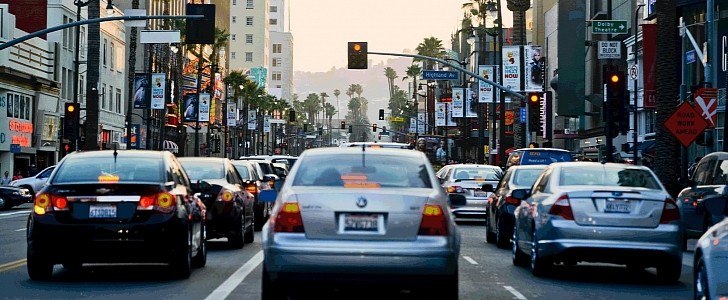Traffic jams have become a common thing pretty much everywhere around the world and spending a couple of hours every day stuck on your way home and to the office is already part of the typical routine.
But authorities in Toronto claim they can deal with the whole thing, so Mayor John Tory has recently announced MoveTO, an ambitious plan whose purpose is to reduce congestion and provide residents with a faster and safer transportation system.
And just as expected, MoveTO relies almost entirely on latest-generation technology, as the local authorities believe that this approach could reduce travel times regardless of the means of transportation that is being used.
More specifically, the plan is divided into five different steps, and their implementation is projected to kick off next year.
First and foremost, Toronto will install smart traffic signals, which are already being used in other locations across the world and are supposed to adjust traffic lights based on the current traffic conditions. The mayor said some 500 such smart traffic signals would be installed across the city in the next five years.
In addition to the new traffic signals, Toronto will also convert 100 locations into intelligent intersections for pedestrians and cyclists. No specifics have been provided on how these work, but there’s a chance they would favor the traffic flow for these two categories.
Then, the local authorities will implement a system called Advanced Transit Signal Priority, or ATSP, and whose role is to detect buses that are running behind schedule and then switch traffic lights to green to help them arrive at their destinations on time.
Toronto will also expand the Construction Hub Pilot Program, which was specifically created to fight congestion caused by construction around work zones. And last but not least, the Transportation Demand Management Strategy will come with a set of dynamic measures that will specifically target certain times, locations, and means of transportation as part of a collaboration between authorities and employers.
Obviously, this traffic revolution won’t just happen overnight, and the mayor said it’d take up to 5 years to complete its implementation. The project has an estimated cost of $38.8 million.
And just as expected, MoveTO relies almost entirely on latest-generation technology, as the local authorities believe that this approach could reduce travel times regardless of the means of transportation that is being used.
More specifically, the plan is divided into five different steps, and their implementation is projected to kick off next year.
First and foremost, Toronto will install smart traffic signals, which are already being used in other locations across the world and are supposed to adjust traffic lights based on the current traffic conditions. The mayor said some 500 such smart traffic signals would be installed across the city in the next five years.
In addition to the new traffic signals, Toronto will also convert 100 locations into intelligent intersections for pedestrians and cyclists. No specifics have been provided on how these work, but there’s a chance they would favor the traffic flow for these two categories.
Then, the local authorities will implement a system called Advanced Transit Signal Priority, or ATSP, and whose role is to detect buses that are running behind schedule and then switch traffic lights to green to help them arrive at their destinations on time.
Toronto will also expand the Construction Hub Pilot Program, which was specifically created to fight congestion caused by construction around work zones. And last but not least, the Transportation Demand Management Strategy will come with a set of dynamic measures that will specifically target certain times, locations, and means of transportation as part of a collaboration between authorities and employers.
Obviously, this traffic revolution won’t just happen overnight, and the mayor said it’d take up to 5 years to complete its implementation. The project has an estimated cost of $38.8 million.

